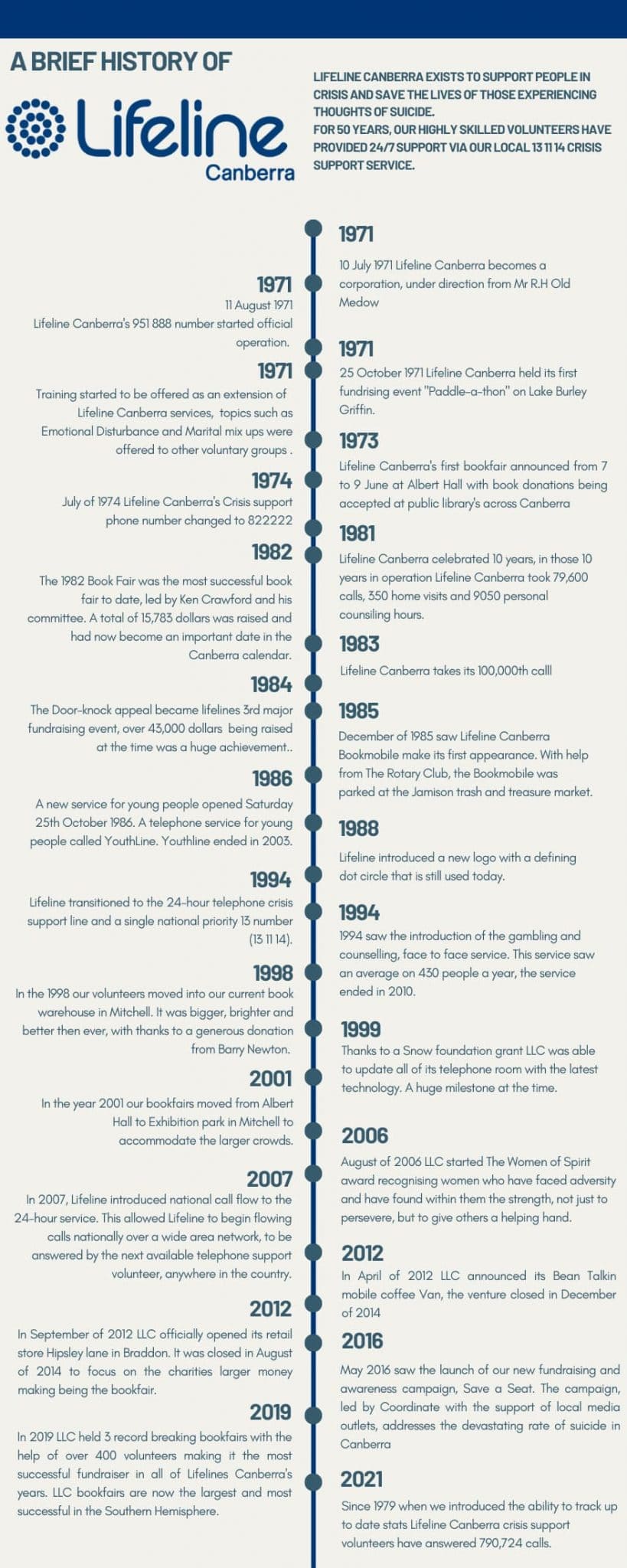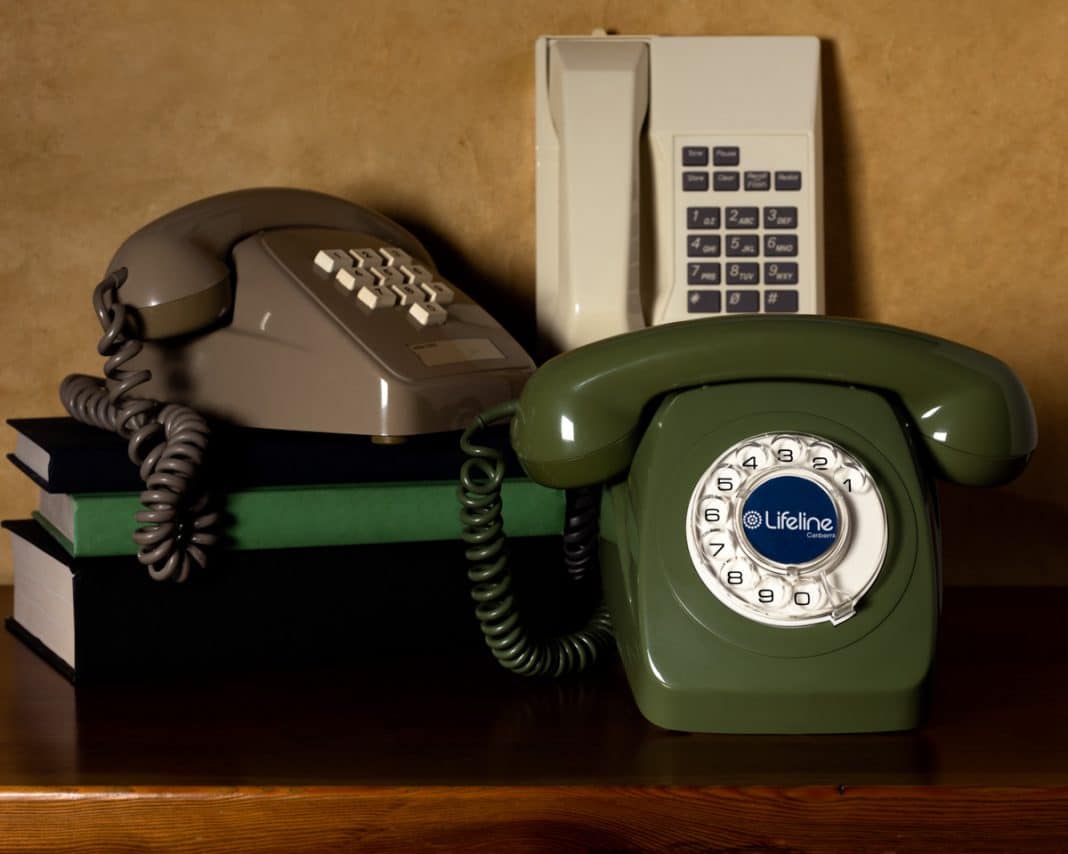
Lifeline Canberra, the largest crisis support centre in Australia, turns 50 this month – and perhaps it has never been needed more.
Since the pandemic, the demand for Lifeline’s crisis support services and programs has increased 40%; volunteers are expected to take more than a million calls this year alone from desperate people, many thinking of suicide.
“We’re up against what is certainly the largest mental health challenge this country has seen,” said CEO Carrie-Ann Leeson.
“Isolation, lockdowns, bushfires, storms and smoke have all ravaged our community in the past couple of years.
“Lifeline will continue to support those in crisis, to meet them where they are at, and help them through.
“We are also forging ahead with plans to educate and bolster our community, from a much younger age, to ensure we are in the best position to live a substantial and joyful life.”
Lifeline’s biggest achievement over the half-century of its existence has been helping to shape a suicide-safe and connected community, Ms Leeson believes. Since 1979, volunteers have answered almost 791,000 calls.
“Every week we lose another Canberran to suicide,” Lifeline’s website states. “And every day, Lifeline Canberra telephone crisis supporters prevent the loss of many more.”
Those volunteers are as diverse as the callers, Ms Leeson said: all genders, backgrounds, ages (as young as 18), and life experiences.
Some volunteer because they want to help others less fortune and make a difference to people; others because they want to give back to a service that has helped them in the past. They remain because they make a difference; they talk to people who have no-one else to turn to, and because they can save a life.
Volunteers spend most of their time at Lifeline listening to the distress the community is in, and supporting the caller to find options for their future, Ms Leeson said.
“They will talk to people with thoughts of suicide, scared from violent relationships, and unable to cope with the situations they are in and the emotions they feel. People struggling with loneliness, anxiety, uncertainty about the future, or grief – all common emotions that have increased during the COVID-19 pandemic.”
The Canberra phone room has 12 seats, and a thousand volunteers. “It sounds a lot like a library,” Ms Leeson said: the volunteers say little as they listen to callers’ stories.
After a call, Ms Leeson said, volunteers often hear “a shift in the caller: they can breathe easier, talk slower, sound calmer, and have a plan for what they will do”. When callers are thinking of suicide, crisis supporters “meet them where they are at in their pain and distress”, so that each caller feels heard, accepted, and validated. Crisis supporters empower the caller to keep themselves safe, while linking to supports and resources.
Talking to people in distress can take an emotional toll. The volunteers regularly check in with their in-shift support about calls that may have upset them, or talk over a snack and coffee with other volunteers.
To meet increased demand during the pandemic, Lifeline has run nearly continuous training for new crisis supporters to help answer more calls, and provided extra support to those on the phones, Ms Leeson said.
Lifeline more than doubled its intake since the pandemic began. In March 2020, when COVID hit, 57 students were two-thirds through their training; over the past financial year, Lifeline has trained 120 volunteers.
Lifeline will mark its 50th birthday with a cocktail party at the National Arboretum on Saturday 31 July, and its bookfair at EPIC in early September.
The public can also support Lifeline’s crisis support service through Book Lovers Lane at the Fyshwick Markets; entering a raffle to win a Volkswagen T-Roc; fundraising activities such as the Push-Up Challenge or the annual winter solstice nude swim in Lake Burley Griffin. The public can also donate online.
Lifeline has also launched Unstoppable.org, a mental health initiative that aims to inspire hope and connection through dance.
“Whilst there are many of us struggling with elements of the pandemic and life in general over the past couple of years, there are many in our community who are doing an incredible job of maintaining their wellbeing,” Ms Leeson said.
“This movement is to give them the stage to start a positive conversation, to activate these human ‘roadmaps’ who are navigating the storm well.”
If you are experiencing crisis, Lifeline is available 24/7 on 13 11 14.
If it is a life-threatening emergency, call 000.



